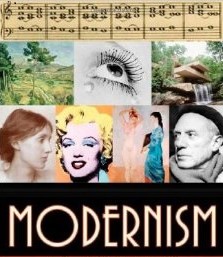Παρουσίαση/Προβολή

Modernism and the English Novel
(63ΛΕ18) - Thalia Trigoni (ttrigoni@enl.uoa.gr)
Περιγραφή Μαθήματος
This course explores the modernist period (approximately 1900-1945), a revolutionary era in literary history, by placing the texts in a social, historical, cultural and formal context. Modernism encapsulated a broad spectrum of responses to the technological, political, cultural, and social changes that occurred at the turn of the last century. It was during this era that every conventional notion about literature was turned on its head. The course will focus on concepts of the “modern”; novelistic experimentation; subjectivity; questions of national identity; notions of empire, exile and expatriation; and redefinitions of gender roles; cosmopolitanism, liberalism, and the rise of fascism. Some of the questions we will be addressing are: What makes a text “modern”? How do literary forms reflect concerns of their time? How do the books we are reading draw from tradition? Break from tradition? How do we think about time, about the past/present/future, about consciousness and the unconscious in modernist literature? We will read and think about the epistemological question at the heart of Modernism and the ideological significance of its textual experimentations, especially modernist fiction’s relationship with the early twentieth-century discourses of imperialism, gender and race. We’ll look at the formal innovations in novels by Joseph Conrad, James Joyce, Virginia Woolf and D.H. Lawrence, as well as theoretical texts by Woolf and Simmel. Our main focus will be on prose (novels and essays) but we will also study artwork to increase our understanding of Modernism. We will study these authors from multiple viewpoints, examining their works not only for themes, narratives and style, but also through application of a variety of critical theories.
Ημερομηνία δημιουργίας
Σάββατο 3 Οκτωβρίου 2020
-
Δεν υπάρχει περίγραμμα